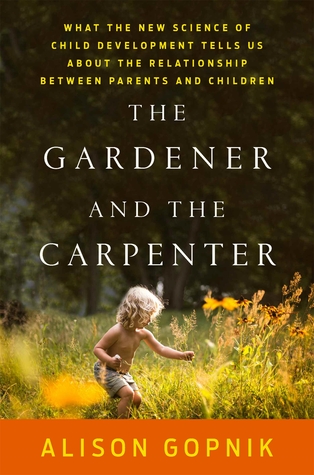‘The Gardener and the Carpenter’ should have been a long blogpost. I’m reminded why I dislike most non-fiction so much: every essay is being dragged out to 250 pages because then it can be sold as a full book. I’d be happy to buy these books for the same price if they’re shorter — but I get annoyed when filler is wasting my time.
I bought this book after reading ‘Meet the parenting expert who thinks parenting is a terrible invention’ from The Correspondent — which appealed to me. Parents shouldn’t try so hard to mould the perfect child, but provide a safe space in which the child can grow up and explore and make mistakes. (This also matches how my parents raised me.) And that article gripped me in a way the book never did.
The book’s amazing message is clear from the intro, but then Gopnik goes into metaphors about dieting and the Lyme disease, and examples about cavemen fighting mammoths, New Caledonian crows, or the Ju/‘hoansi people. And when Gopnik compares babies to vole field mouses, there’s a feeling of cult that reminds me of Jordan Peterson’s 12 Rules for Life (who compares humans to lobsters). But better authors pull of tricks Gopnik can’t. In one page, she goes from mentioning that monkeys are able to identify T’s, to using a quote from Socrates to prove her point. Unlike better books, Gopnik’s message isn’t holistic and doesn’t fully convince me, and difficult topics are often concluded with “Science still has a lot to discover”.
In a chapter about technology Gopnik tries to be a Yuval Noah Harari, but makes a poor futurologist. Calling young people ‘digital natives’ is enough to trigger my bullshit-meter. And people don’t talk to the whole world on the web — far from.
Neither do her one-liners strike me as true: “We don’t care for children because we love them, we care for children because we love them.”
On the upside, the chapter on teenagers is great — and the overall message deserves being heard. But it should have just been a blogpost, or at most, an essay.




